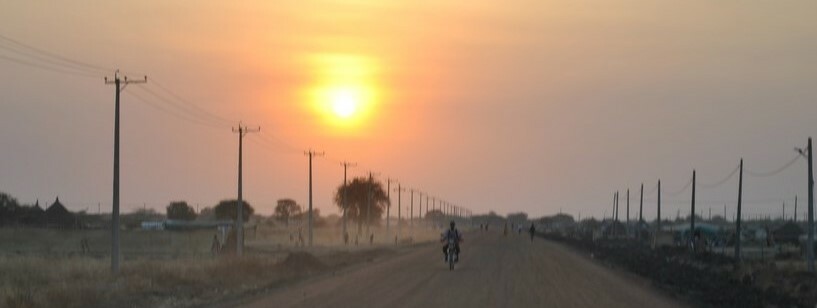A civil society activist in the disputed territory of Abyei said citizens in the area are ready to take part in the upcoming elections scheduled for 2024 in South Sudan.
In December 2024, South Sudan is due to hold general elections, the culmination of a 2018 peace agreement.
In an interview with Radio Tamazuj on Thursday, Yousif Lal, a prominent civil society activist in the Abyei area, said that Abyei’s decision to vote in the upcoming elections in South Sudan was not solely based on its identity as Ngok Dinka land, but rather because it is geographically located within South Sudan.
Lal stated, “Abyei is designated as an administrative area, but it receives directives from President Salva Kiir of South Sudan. We are part of the South Sudanese citizenry, not just because we are Dinka, but because we are geographically and administratively part of the south.”
He highlighted the significant role of South Sudan in governing Abyei, including the provision of salaries, institutional support, and road repairs. Lal pointed out that if South Sudan did not consider Abyei as part of its territory, it would not have invested in the region’s welfare.
The activist pointed out that the people of Abyei had fought alongside South Sudan to gain independence and that the SPLM Party had played a significant role in that struggle.
Lal highlighted the 2013 unilateral referendum in which the Ngok Dinka chiefdoms in Abyei voted to join South Sudan, emphasizing that the governments of both Sudan and South Sudan had not responded to the result. He called on candidates participating in the upcoming elections to prioritize the Abyei issue in their agendas.
According to the Abyei protocol, which was part of the 2005 Comprehensive Peace Agreement (CPA), a boundaries commission was supposed to be established to determine the ownership of Abyei. However, this task was not fulfilled before South Sudan’s referendum in 2011.
The plebiscite to determine Abyei’s status was delayed until 2012 when the African Union panel mediating the proposal endorsed the October 2013 referendum. Nevertheless, in 2013, Abyei communities independently voted to join South Sudan, but the results were not recognized by either Sudan or South Sudan. As a result, Abyei citizens sought international support in 2014 to assert their rights.
When reached for comment, Abyei’s permanent lawyer, Romano Kuot, affirmed that the people of Abyei constitutionally have the right to participate in the upcoming elections as citizens of South Sudan with equal rights.
Kuot also expressed concern about the South Sudanese government’s reluctance to recognize the results of the 2013 referendum, as the government had initiated and facilitated the process.
Kuot clarified that Abyei’s final status is a separate matter from the participation of its citizens in the elections. He pointed out that according to Article 97, Sub-article 4 of the South Sudanese Constitution, the people of Abyei are considered citizens of the Republic of South Sudan with full rights, irrespective of the final status of Abyei.
The lawyer reiterated that the ongoing pursuit of Abyei’s final status should not impede the full participation of Abyei’s residents as citizens of South Sudan in the general elections.




